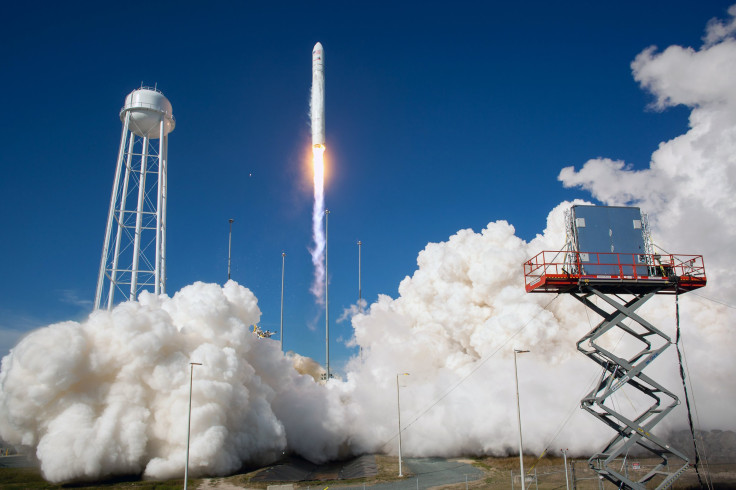Orbital Successfully Launches Cygnus Spacecraft On Mission To ISS

Private spaceflight company Orbital Sciences Corp. has successfully completed the first launch of its unmanned Cygnus capsule.
The Cygnus was launched on Orbital’s unmanned Antares rocket at 10:58 a.m. EDT, lifting off from NASA’s Mid-Atlantic Regional Spaceport on Wallops Island, Va. The 13-story rocket carried the robotic Cygnus freighter some 170 miles into Earth’s orbit on Wednesday.
The Cygnus, loaded with 1,543 pounds of supplies including food and clothing, will perform a variety of tests in low-Earth orbit before docking with the International Space Station on Sunday.
“We are very pleased with the early operations of the COTS demonstration mission, beginning with another on-the-mark launch by Antares. The Cygnus spacecraft appears to be fully healthy and operating as expected during this early phase of its mission,” David W. Thompson, Orbital’s president and chief executive officer, said in a press release.
“Over the next few days, our Cygnus team, together with our NASA partners, will conduct an extensive series of in-orbit tests to verify the performance of the spacecraft before attempting the rendezvous and berthing operations with the space station. There is clearly still a lot of work in front of us, but the mission looks like it is off to a great start.”
If all of the Cygnus’ tests go according to plan, NASA will clear the robotic spacecraft to approach the International Space Station on Sunday. From there, astronauts inside the space station will use a robotic crane to bring the Cygnus into the ISS’s docking bay. The Cygnus will remain docked with the ISS until Oct. 22.
Orbital is one of only two private companies that NASA has authorized to carry payloads to the International Space Station. Alongside Elon Musk’s SpaceX, Orbital is set to take over NASA’s job of carrying cargo and crew to the ISS, allowing the government space agency to both save on costs and focus more strongly on unmanned missions to Mars and deep-space asteroids. NASA has invested $686 million in both Orbital and SpaceX and has awarded the two firms some $3.5 billion in contracts delivering cargo.
When the Cygnus docks with the ISS, it will become the second ever private spacecraft to make such a journey. SpaceX’s Dragon previously docked with the ISS in May 2012 and has made two more excursions to the space station since then.
Unlike the SpaceX Dragon, Orbital’s Cygnus spacecraft is not reusable and will be destroyed when reentering Earth’s atmosphere after completing its mission with the ISS.
© Copyright IBTimes 2024. All rights reserved.












